| Title | No Laughing Matter |
|---|---|
| Director | Pe Maung Same |
| Producer | Lin Sun Oo |
| Cinematographer | Pe Maung Same |
| Editor | Zaw Win Htwe |
| Country | Myanmar |
| Year of Production | 2020 |
| VDP Selection Year | Laugh!-2023 |
| Screen Time | 31min |
| Language | Burmese |
| Subtitles | English/Japanese |
Overview
“No Laughing Matter” is a poignant journey through the art of satire and presents the insights of U Pe Thein, a celebrated political cartoonist. Through a series of unearthed tape recordings from 1996, this documentary delves into the entwined history of political satire and the turbulent political landscape of Myanmar. It also provides a penetrating commentary on free press and political cartoons as mirrors on society.
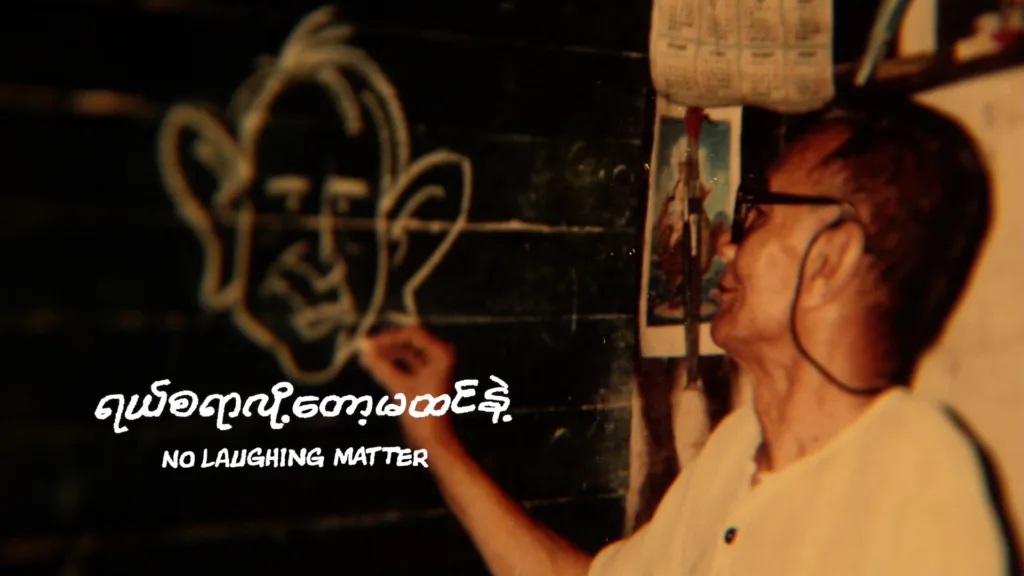
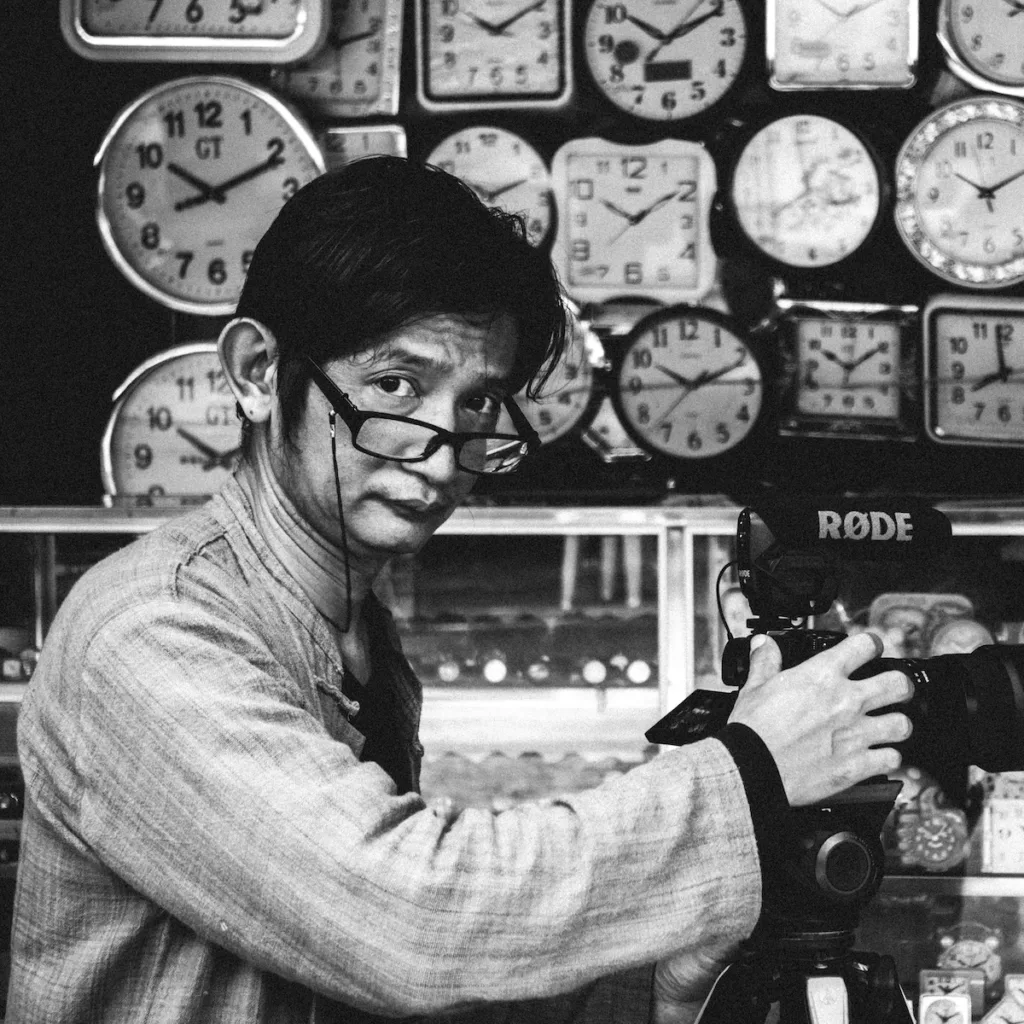
Pe Maung Same
Director
Pe Maung Same is an independent documentary filmmaker who has been working in the Myanmar film industry for over 20 years. One of his most celebrated film is ‘Nargis – when time stopped breathing’, which tells the lyrical story of the coexistence of life and death after the biggest natural disaster in Myanmar. It screened in over 20 international film festivals. In 2013, he co-directed ‘The River, Our Ayeyarwaddy’ with Tay Zar, where they captured the Irrawaddy river and the people who depend on it highlighting the threats it meets. He has also been training young emerging filmmakers of Myanmar, in collaboration with different INGOs and local NGOs. He now mentors film students from diverse communities and provides consultations to news agencies for programs while working on his own films as well.
Lin Sun Oo
Producer
Lin Sun Oo is the co-founder of Tagu Films – a local independent film production company based in Myanmar. He has produced several award-winning short documentary films. The most notable of which is ‘This Land is Our Land’ which received the Aung San Suu Kyi award for Best Documentary at the Human Rights and Human Dignity International Film Festival 2015. He transitioned to producing short films starting with ‘Acceptance’ which won the Audience Award as well as the Best Actress Award in the 9th Wathann Film Festival in 2019. In 2020, he produced ‘No Laughing Matter’ which received the Best Documentary Award at the 10th Wathann Film Festival. Lin has worked on a feature length film titled ‘The Mist of Maya’ which was selected for the Locarno Open Door’s in 2021. He has begun work on his first feature length documentary titled ‘The Birdwatcher.’ Besides production, Lin Sun Oo has run several workshops for first time filmmakers for ethnic minority communities in Myanmar.
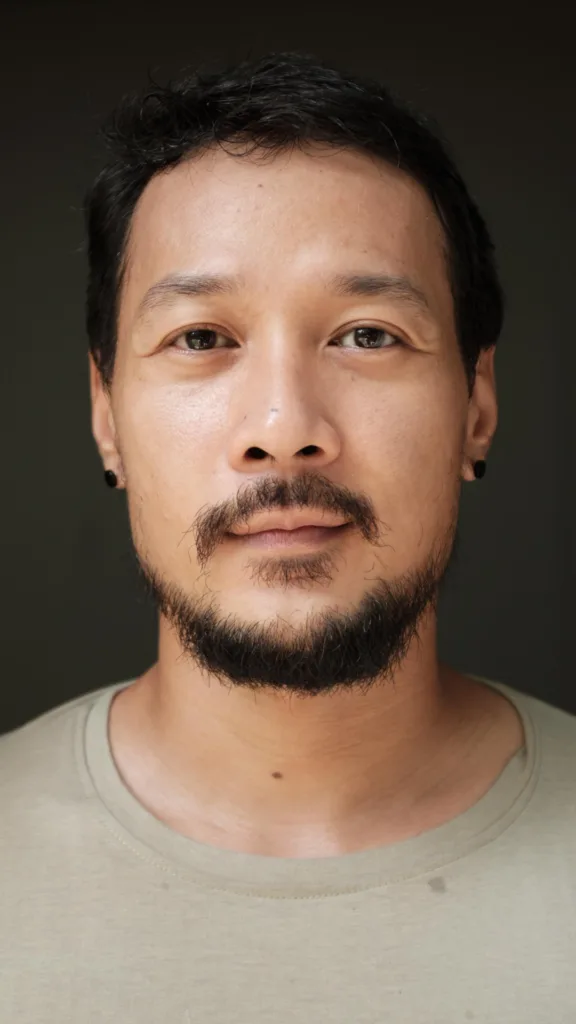
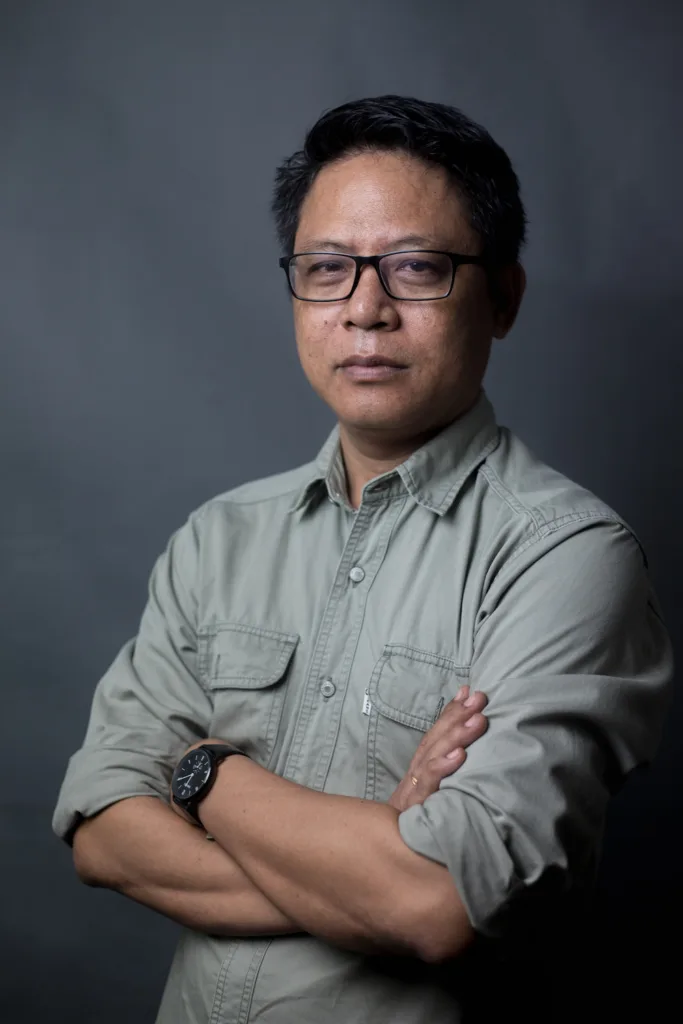
Zaw Win Htwe
Editor
Zaw Win Htwe is a seasoned film and documentary editor based in Yangon. After working as a film editor in the Burmese commercial film industry for nine years, he shifted his focus toward documentaries and independent films in 2009. He was the editor of ‘The Monk’ (2014), one of Myanmar’s most recent famous independent films. His edited documentaries have won various awards and have been screened in many international film festivals. He continues to work as an editor and editing mentor for local documentaries and independent films.
Interview with Tagu Films
Why did you make this documentary?
How did you come to work on this theme?
‘No Laughing Matter’ was made in 2020 after the director found lost audio recordings that his father had made in 1996. In Myanmar, the political history post-colonialism has always been shrouded in mystery. As a nation we do not often reconcile or learn from our past. We were fortunate to have found these recordings that provided us with a short glimpse of a free press and political cartoons that reflected times: from our colonial past until the military junta of 1990s. It is said that history is cyclical and repeats itself. Unfortunately many of the issues discussed in this film remain salient socio-political problems that we have to face today.
Commentary from the Screening Committee Members
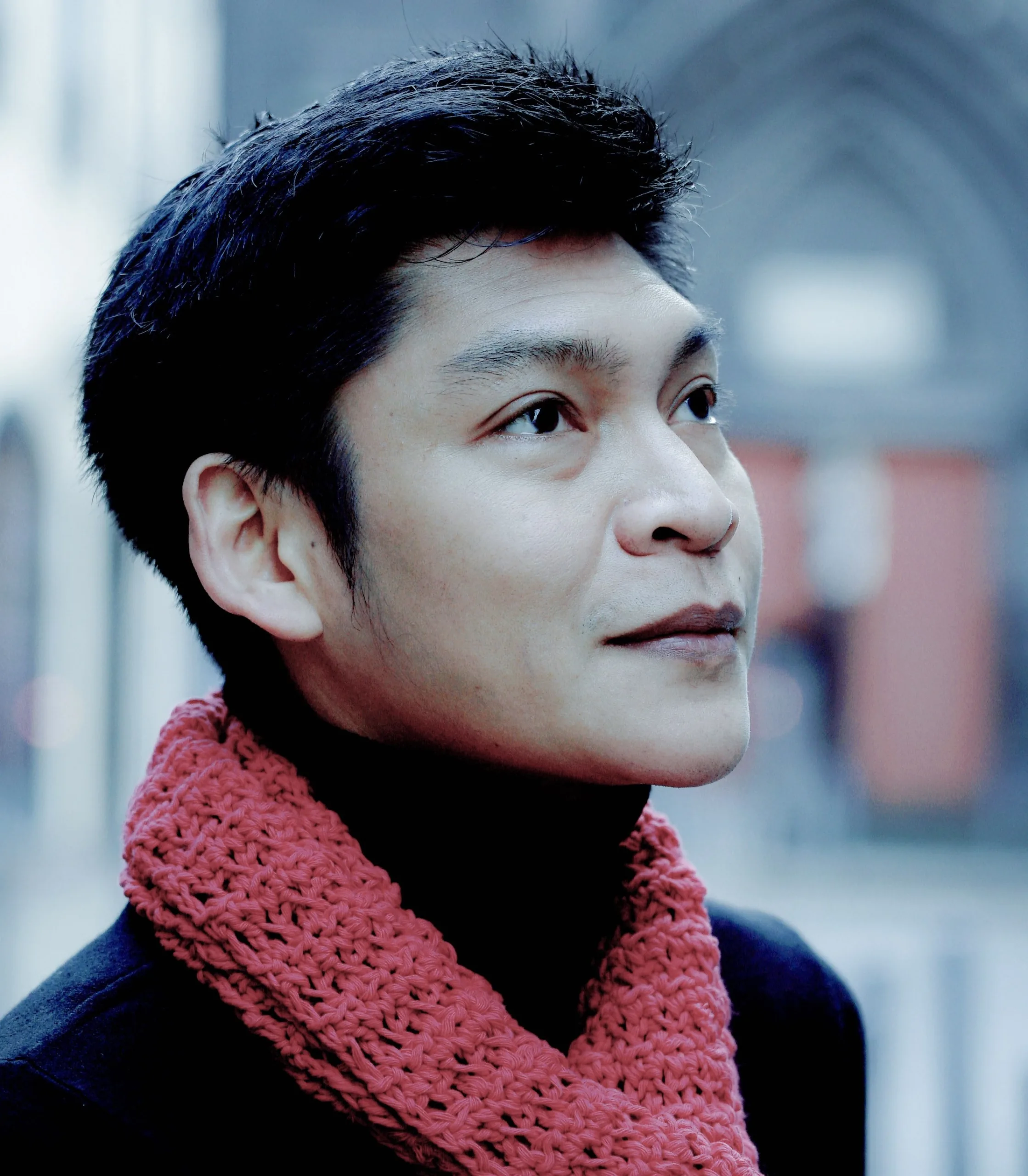
Sein Lyan Tun
filmmaker/producer
This documentary showcases an impressive archive of work from one of Myanmar’s legendary cartoonists, U Pe Thein. It focuses on the director’s father’s cartoons and art works intertwining them with a captivating, rare recording of his voice. This mix satirizes the political situation of Myanmar through from British colonial rule to contemporary times. Although not all cartoons are translated, the universal language of satire powerfully mocks the political and societal dynamics of their respective eras. This documentary is unparalleled in its documentation of a legendary cartoonist. It also sparks curiosity about how Southeast Asian cartoonists have similarly portrayed their political situations and society. Impressively well edited, with strong entertaining cartoons I just wish that we could have had all of them translated.
Commentary for deeper understanding
Keiko Tosa
Fellow (emeritus professor), Research Institute for Languages and Cultures of Asia and Africa, Tokyo University of Foreign Studies
This documentary is based upon cassette tape recordings left by U Pe Thein, one the most celebrated political cartoonists of his day and is a meticulously filmed genealogy of satirical cartoons with many related ones shown in succession. His masterful narration, pauses, and the audience laughter, convey the lively sense of reality of his talks.
As this work relates, the origins of satirical caricatures began in the British colonial period and early cartoonists were British. Later in 1918, they established the Burma Art Club fostering artists such as Ba Gale and Ba Gyan who studied drawing leading to the rise of U Pe Thein. Incidentally, Ba Gyan is said to be the founder of Burmese cartoons and although he inherited British black humor, he also created cartoon strips for children and some Myanmar’s first animated cartoons. And it is worth noting that this documentary explains how readers first came to encounter cartoons and learn to read them. In can be said that the artists came to mature with their readerships.
Ba Gyan held an annual exhibition of works during the Tazaungdaing Lantern Festival (in November) on 13th street in Yangon where he used to live. It was said that he continued to do so until his death in 1997. I once came across the exhibition in the 1980s when I was taken there by an acquaintance. During the festival, people of all ages gathered around the exhibits, displayed like posters, laughing and chatting about this and that. For me, this was an eye-opening experience as to how much the Burmese love works of satire.
Yet, on the other hand, this documentary is also a history that relates Myanmar’s struggle for independence, its fight against a dictatorship, and freedom of speech as seen through cartoon sketches. For example, cartoon vignettes captured key events in Myanmar’s modern history; such as those of the British entering pagodas with their shoes on during the British occupation period; the trial of U Ottama (a revered monk); joint struggles with the Japanese military as seen through the recruitment of reinforcement troops; the subsequent anti-Japanese movement; and the assassination of General Aung San, the comrade or leader? of the Burmese independence movement. Pe Thein’s pen and wit in portraying changes in the independence struggle are masterful. He depicted the shift from old traditions to the new struggle for independence symbolized by the donning of the traditional national costume (the longyi). Initial independence fighters would dress in long ostentatious costumes as he had failed to get to get the gist of their political demands with long traditional rhetoric. The transition from that to a straightforward struggle for freedom and independence is precisely illustrated by the longyi becoming gradually shorter.
He also presents the social problems of the post-independence era of the Ne Win administration (1962-88). Experiences with the black market and vignettes that seem to predict/incite the pro-democracy movement, which emerged unexpectedly on 8 August 1988, highly excite the audience. In fact, this lecture in the documentary was given to the National League for Democracy (NLD) in 1996 and one is left wondering how it was possible for the NLD to hold such a lecture under military rule even thought at the time repression had slightly eased. The very structure of the lecture by Aung San Suu Kyi which followed Pe Thein’s, provides a clear example of the relationship between cartoons and politics.
As it is with any society, laughter is extremely important in Myanmar. It is an acknowledged part of everyday conversations, and indispensable in various ceremonies and rituals and performances. And as with humor that is rooted in daily life, such as the Japanese “Shinki Geki” (new comedy) of the Yoshimoto and Shochiku style, black humor and political satire are deeply engrained in Burmese culture. Both can be seen in one panel cartoons in newspapers and magazines. They inject political and social issues into the midst of everyday humor which can be a type of wisdom that circumvents speech control.
Although this work is based upon a cassette tape recording from 1996, over the years politics and satire have closely intertwined through different media. For example, during the 1988 pro-democracy movement, Zarganar, a student at the Yangon Institute of Technology, dominated the political satire scene as a clown sandwiched between ‘anyeint,’ traditional Burmese entertainment. And at the water festival, the ‘thangyat’ (satirical musical song style) used competitively, has also been satirized and directly criticized through rhyming verses. The intensity of these was so much that they were temporarily banned during the Ne Win administration.
After the current coup D’état, a young charismatic leader in Monywa city, Wai Moe Naing, known as Monywa Panda and famous for his fierce resistance, organized his friends to create a thangyat and presented it as a video. Additionally, newspapers and magazines that are not pro-military government have been banned, yet many share cartoons and illustrations relating to the coup and resistance on social networking sites. Hopefully, the director will one day make a documentary about this new situation. In closing, while laughter is important, in Myanmar there are still ongoing circumstances that are “no laughing matter.”
Related Films
-
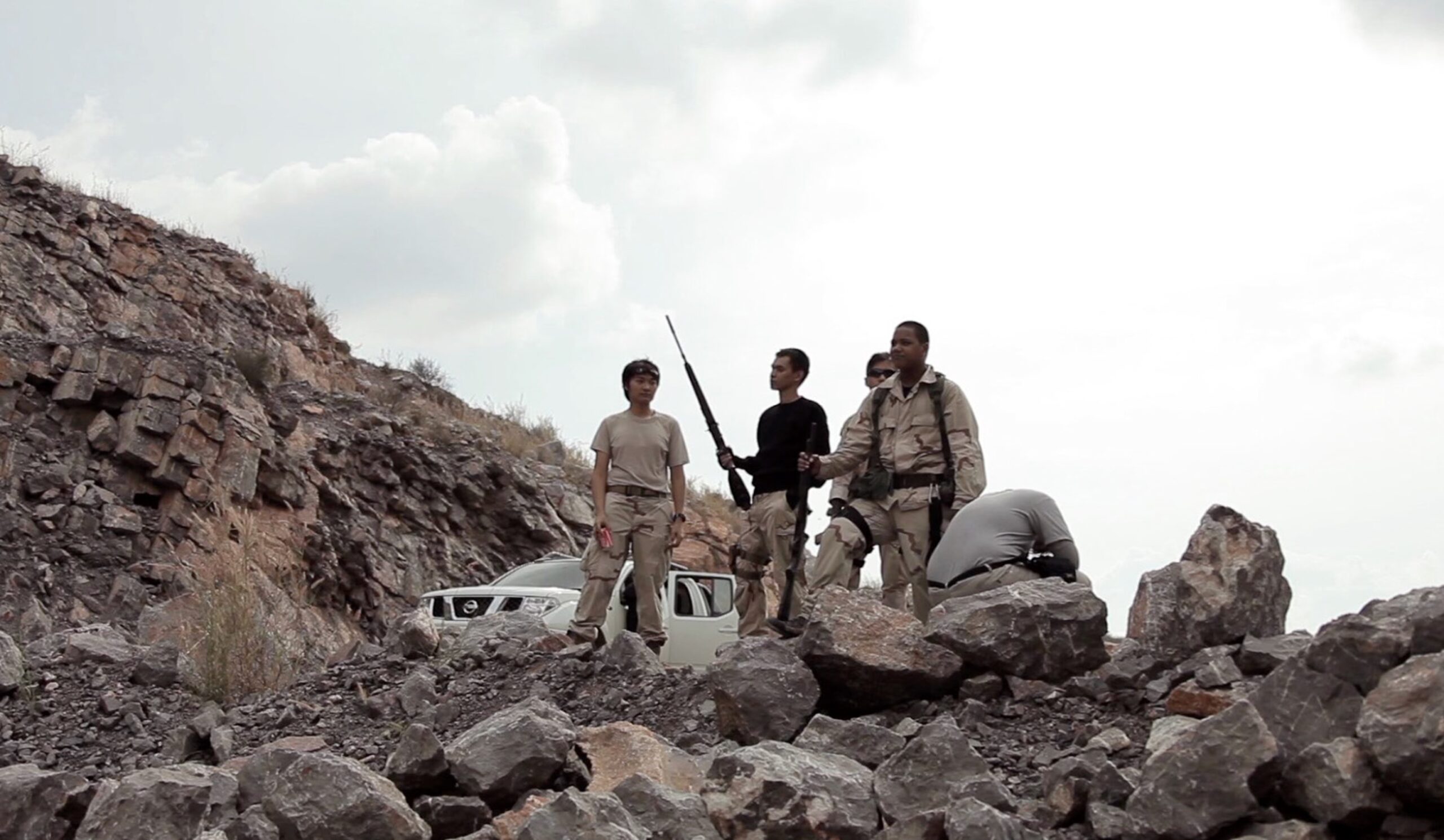
Cosplayer
This documentary delves into the little-known world of soldier cosplay subculture in Thailand. Presenting an intimate story of soldier cosplayers in Thai society, the documentary follows Jum, a man in his late twenties, who is passionate about soldier cosplay and explains how it came to be central in his life. Cosplayer provides a window on how manga, video games and movies are consumed in contemporary Thai society.- Country
- Thailand
- Director
- Yingsiwat Yamolyong
- Time
- 27min
-
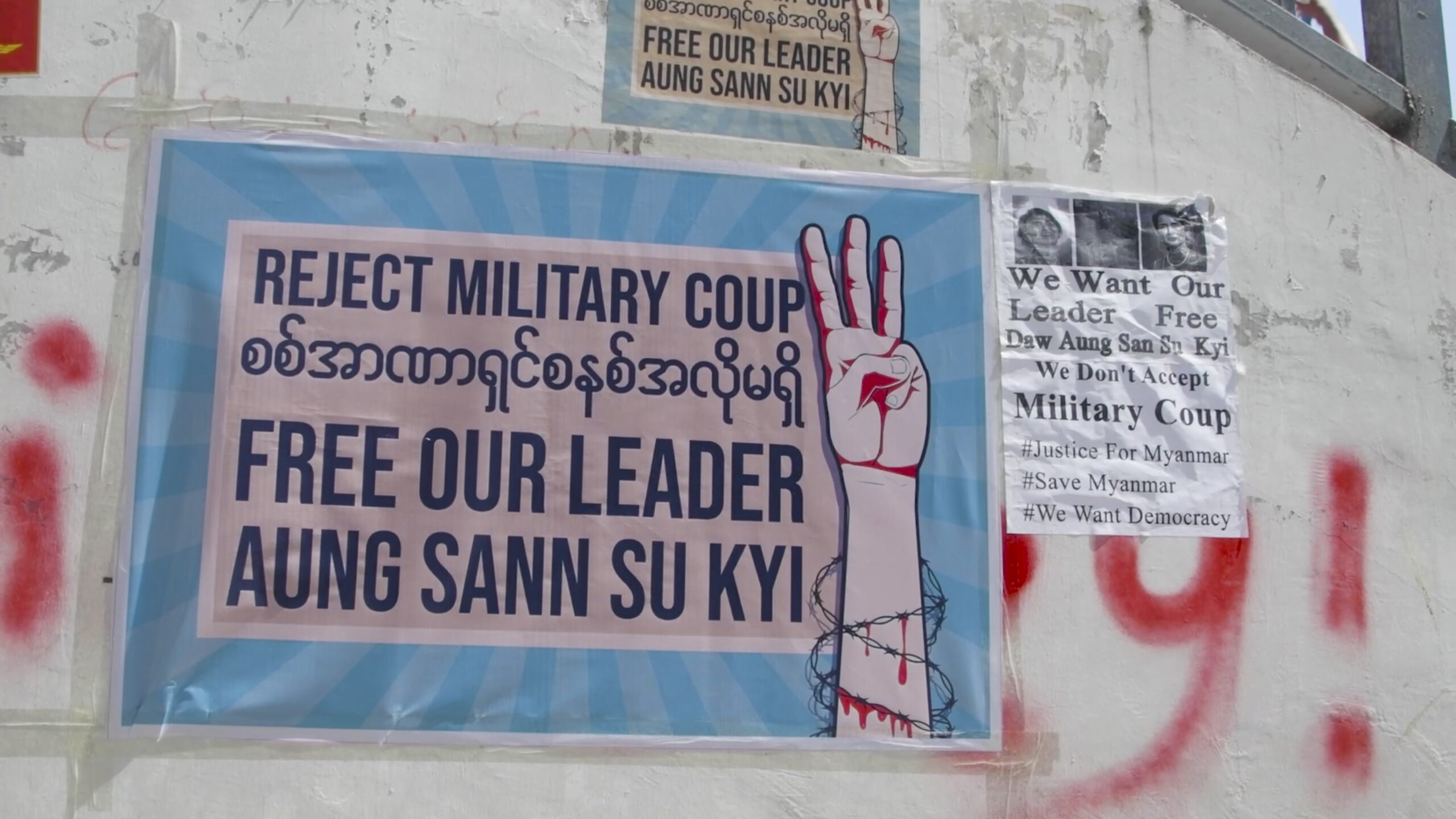
Strike With the Beat
“Strike with the Beat” bears witness to cold blooded killings in the wake of the coup d’état by the Burmese military when they seized power. This documentary provides a bare account of how civil society rose to protest and focuses on one group called “Drum Revolution” who unified and came out against the military Junta. This documentary provides a critical on the ground overview of the turmoil that struck Yangon and the whole country in early March.- Country
- Myanmar
- Director
- Sai Kyaw Khaing
- Time
- 25min
-
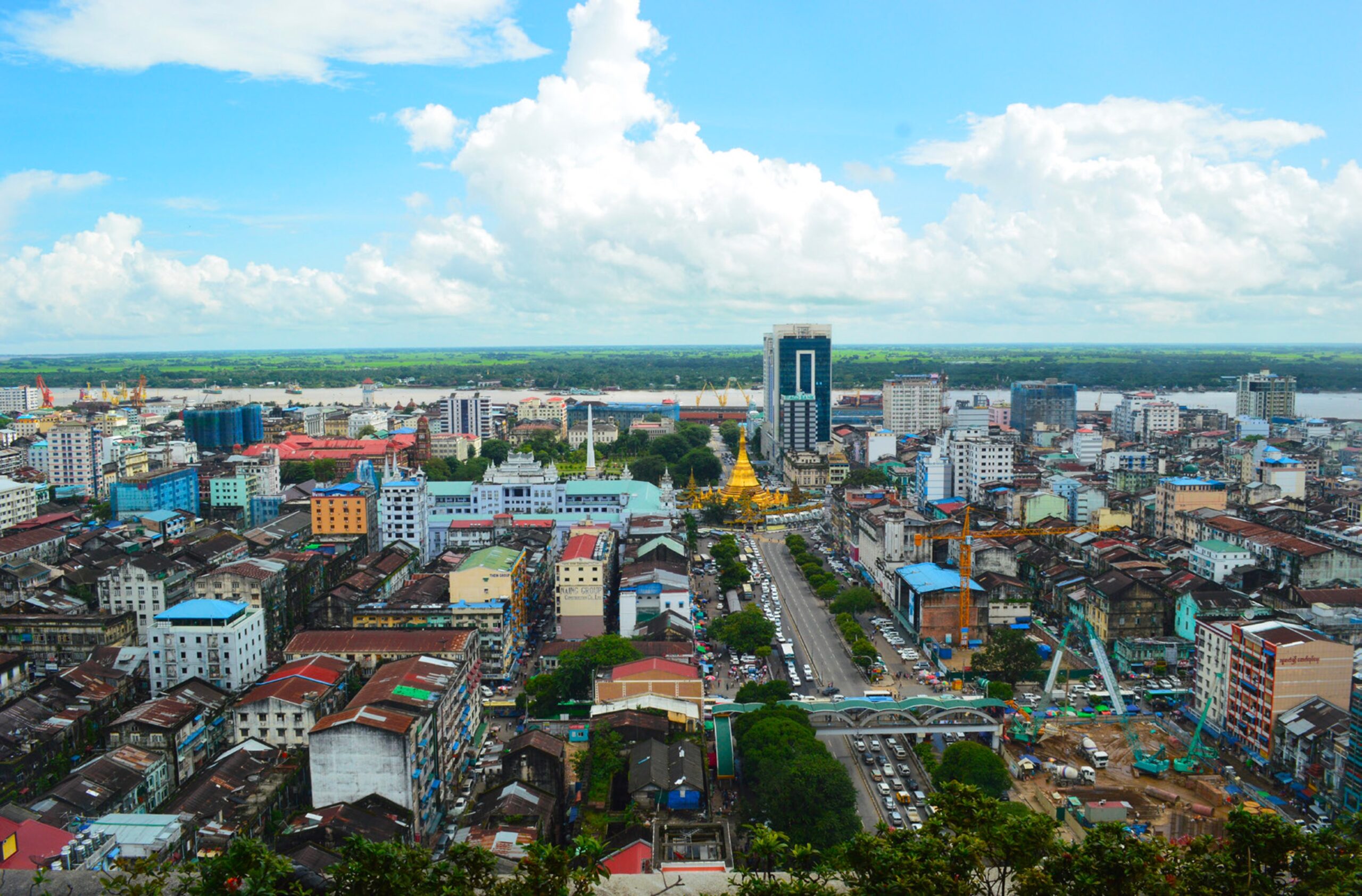
Yangon, the City Where we Live
This film offers a unique window onto Yangon, a city undergoing immense change. Living in harmony is the art of living in life. A city’s attractions can be irresistible and enticing. Yangon, is a safe fortress for the migrants where all live together. Through a unique mixture of narrated poetry and juxtaposed images from Yangon’s urban landscape, this documentary depicts a city that holds the hopes and aspirations of a diverse population, struggling and enduring in the hearts of all who live within it.- Country
- Myanmar
- Director
- Shin Daewe
- Time
- 28min
-
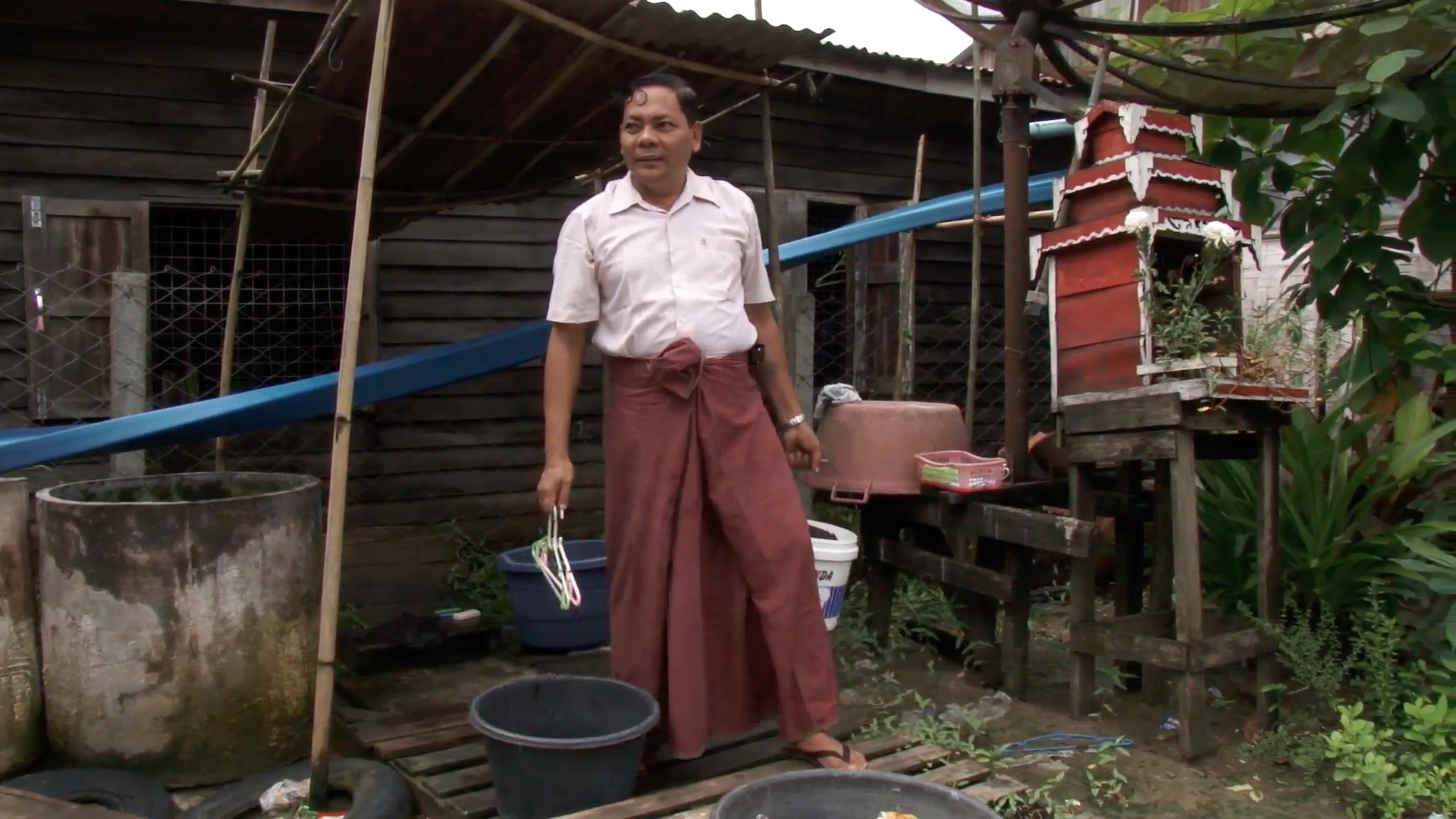
A Political Life
U Thein Soe dedicated the best years of his life to working as Aung San Suu Kyi’s bodyguard. To please his long-suffering wife and family he has now bowed out of politics − but still can’t help giving up his time to provide local people with valuable legal advice.- Country
- Myanmar
- Director
- Soe Arkar Htun
- Time
- 20min
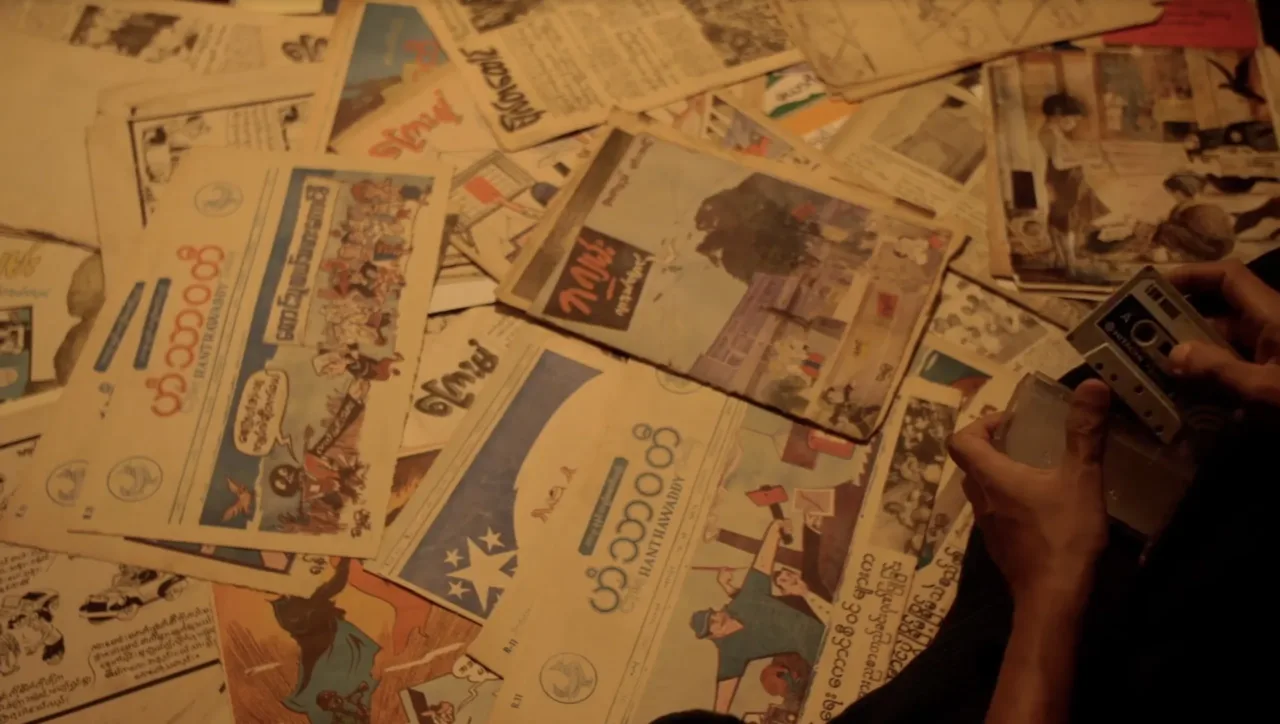
Yoko Hayami
Professor, Center for Southeast Asian Studies, Kyoto University, Cultural Anthropology
Produced in 2020, this work predates the 2021 military coup in Myanmar. The power of laughter in cartoon journalism, which has depicted the relationship between society and politics throughout the ages, is conveyed in the voice of the cartoonist’s (the protagonist’s father) speech on audio cassette tape, along with the audience’s laughter that occurs during the speech. The cassette tape is the primary source of the power of this work. The richness of the images and sound, the history and background, the politics of the cartooning itself, and the power of the laughter that accompanies it are richly portrayed in this film, which evokes for us the faces of the citizens of Myanmar today.